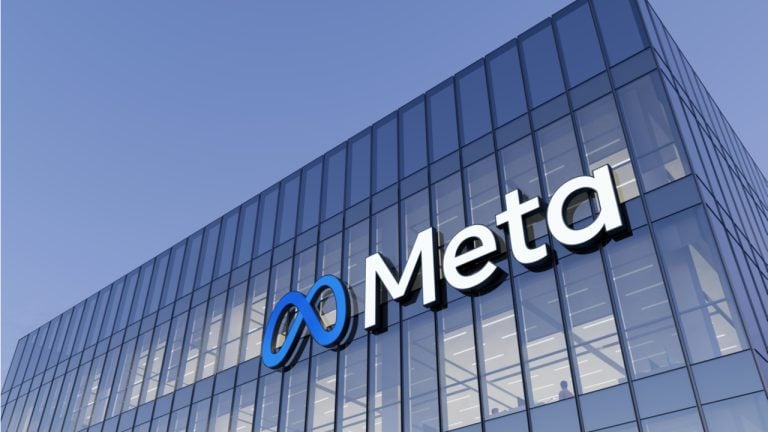
The new neural technology that Meta is developing will be “pretty wild,” said Zuckerberg, adding its first application will be for AR glasses.
Meta CEO Mark Zuckerberg has hinted his firm is making progress on its first “consumer neural interfaces,” non-invasive wearable devices that can interpret brain signals to control computers.
However, unlike Elon Musk’s Neuralink brain chip, Zuckerberg explained that these devices wouldn’t be something that “jacks into your brain” but something wearable on the wrist that can “read neural signals that your brain sends through your nerves to your hand to basically move it in different subtle ways.”
Meta first began discussing the development of “wrist-based interaction” in March 2021 as part of Facebook Reality Labs Research.
 Meta, the social network company, has announced that it will cut 11,000 jobs, letting go of 13% of the employees in its workforce amidst a “cultural shift” in the company. Mark Zuckerberg, CEO of the company, explained this decision was made due to a need to become more “capital efficient,” and described the next steps […]
Meta, the social network company, has announced that it will cut 11,000 jobs, letting go of 13% of the employees in its workforce amidst a “cultural shift” in the company. Mark Zuckerberg, CEO of the company, explained this decision was made due to a need to become more “capital efficient,” and described the next steps […] Meta, the company formerly known as Facebook, is still struggling for its metaverse app Horizon Worlds to find its intended audience. The company, that presented a video of full new avatars, including feet this week, was criticized due to the prepared nature of the presentation. In the same way, the company lowered the goal of […]
Meta, the company formerly known as Facebook, is still struggling for its metaverse app Horizon Worlds to find its intended audience. The company, that presented a video of full new avatars, including feet this week, was criticized due to the prepared nature of the presentation. In the same way, the company lowered the goal of […]
A suite of Microsoft products will feature in Meta’s new Virtual Reality headset, with Meta CEO Mark Zuckerberg calling it the “virtual office of the future.”
Meta Platforms has partnered with technology giant Microsoft to bring a range of Microsoft Office 365 products into Meta’s Virtual Reality (VR) platform, aiming to entice companies into working in virtual environments.
During Meta’s Connect 2022 keynote on Oct. 11, Microsoft CEO Satya Nadella said its Teams video calling app would integrate with Meta’s “Quest” and newly unveiled “Quest Pro” VR headset allowing people to gather in a virtual space akin to a boardroom.
Familiar Microsoft productivity applications such as Word, Excel, PowerPoint, Outlook, and SharePoint will also be made available within Meta’s VR. Nadella added future functionality would include the ability to stream a Windows Cloud computer to Meta’s headsets.

Microsoft’s enterprise-level mobile device and identity management applications will be compatible with Meta’s Quest and Quest Pro headsets, Nadella said, allowing companies to manage and secure VR headsets in their corporate networks just as they would computers or phones.
Meta is betting its Quest Pro headset, packed with new features, will tempt users into a virtual workday. The company claims the new equipment is more comfortable, has better performance and improved clarity with higher resolution over its existing headset.
The Quest Pro is also said to have “more intuitive” feedback on its hand controllers and what’s called “real-time expression tracking,” in which the user’s virtual avatar mimics the facial expressions, such as smiles and winks, of its real-life counterpart.
In the keynote, Nadella said the pandemic has brought about a “once-in-a-lifetime” chance in formerly office-based work environments, referring to the ongoing remote work policies first implemented due to COVID-19 restrictions.
“We’re bringing the Microsoft Teams’ immersive meeting experience to Meta Quest in order to give people new ways to connect with each other,” Nadella said, adding: “Now, you can connect, share and collaborate as though you are together in person.”
“As in-person work ramps up, we want everyone to have the ability to feel like they’re present,” Meta’s CEO Mark Zuckerberg added.
Microsoft Teams will also be cross-compatible with Meta’s VR space for business meetings called Horizon Workrooms, Zuckerberg said this cross-device experience will be “the foundation of the virtual office of the future.”
Related: Facebook’s metaverse will ‘misfire,’ says Vitalik Buterin
Since the company changed its name from Facebook Inc to Meta last year, its focus and resources have heavily shifted into building what Zuckerberg calls an “open” and “interoperable” Metaverse.
It hasn’t come cheap with the company’s research and development arm, Reality Labs, burning through billions of dollars to put forward the hardware and virtual worlds required, spending $5.7 billion alone so far in 2022.
Despite the losses, Zuckerberg was adamant about the “massive opportunity” in a July Q2 earnings call, even acknowledging that such losses could continue for several more years.

Social media giant Meta is registering eight new trademark applications related to crypto and decentralized finance (DeFi) technology. According to recent filings made to the United States Patent and Trademark Office (USPTO), the company formerly known as Facebook has requested to trademark several blockchain services and other related crypto technologies in a push toward launching […]
The post Social Media Giant Meta Files Multiple Trademark Requests for Crypto and Web 3.0 Technology appeared first on The Daily Hodl.

87% of respondents said they would switch to full-time gaming in the metaverse if the pay is good.
A survey of 1,000 United States consumers around growing interest in the metaverse has revealed some interesting results.
In a survey commissioned by nonfungible token and metaverse infrastructure provider Advokate Group, 87% of respondents preferred a decentralized metaverse on a blockchain over some of the mega projects planned by tech giants. This became more evident when 77% of the respondents shared concerns over Facebook’s entry into the metaverse, especially since it owns users' metaverse data.
Facebook’s tainted past with mismanagement of private user data has already dismantled its early plans of launching a stablecoin called Diem. The stablecoin project faced heavy scrutiny from the U.S. Congress, and the project eventually came to a crashing end. A similar concern has started to grow around Facebook’s multi-billion-dollar metaverse aspirations.
The surveyed respondents were divided in terms of when metaverse could become mainstream, 20% of respondents believe it could take 1–2 years while 49% said it could take up to 3–6 years. Gaming was the primary choice of spending time in metaverse followed by socializing. 55% of the respondents said they would spend more than three hours a day in the metaverse.
Related: Tusk Ventures CEO: Don't repeat social media mistakes with Metaverse regulations
A majority of the respondents also showed a keen interest in making money while playing games. With play-to-earn models being the latest rage, 93% of the respondents said they would spend more time playing games if it could make for the minimum wage. Some 64% said they would spend more than three hours if they made real money and 87% would switch to full-time gaming if the pay was good.
Metaverse as a concept only became formidable in 2021 and now every major tech giant be it Apple, Facebook or Google is looking to launch or invest in the ecosystem. However, a significant chunk of crypto proponents is advocating against the entry of centralized cash-rich firms, as they believe the concept of decentralization would take a back seat.

It looks like Meta is planning to jump ship, with inside sources saying that the crypto initiative is trying to sell its assets.
Meta-backed crypto initiative “Diem” is reportedly trying to sell its assets, seemingly calling time on Facebook founder Mark Zuckerberg’s grand ambitions for a stablecoin to act as the internet’s currency.
Diem — which was previously known as Libra — is Meta Platform’s cryptocurrency initiative. According to insider sources speaking with Bloomberg, it is considering selling assets to return capital to its investors.
The sources said that Diem is in discussions with investment bankers to determine the best way to sell its intellectual property and cash out on whatever value the project has maintained.
It’s unclear how the company will be valued, and there is no guarantee that they will be able to find a buyer. According to the source, about a third of the venture is owned by Meta. The remainder is owned by members of the association and partners, which include Coinbase Global, Uber and Shopify.
Diem has sparked no shortage of controversies in its short time of existence since launching on June 18, 2019. Libra, as it was known at the time, intended to be maintained by a Switzerland-based consortium of companies called the “Libra Association.”
However, news of the project’s launch triggered immediate pushback from the U.S. government and regulators around the world, who cited concerns regarding privacy and monetary sovereignty. Both Facebook CEO Mark Zuckerberg and former Libra head David Marcus testified before the House Financial Services Committee.
Related: New name, old problems? Libra’s rebrand to Diem still faces challenges
At one July hearing in 2019, Senator Sherrod Brown of Ohio asked Marcus, "do you really think people should trust Facebook with their hard-earned money?"
“If our country fails to act, we could soon see a digital currency controlled by others whose values differ radically from ours,” Marcus responded.
Deterred by regulatory scrutiny, many partners began to abandon the project altogether, eventually including Marcus himself. It was at this point it rebranded to Diem, hoping to shake off the mass regulatory panic that drowned out Libra’s initial announcement.